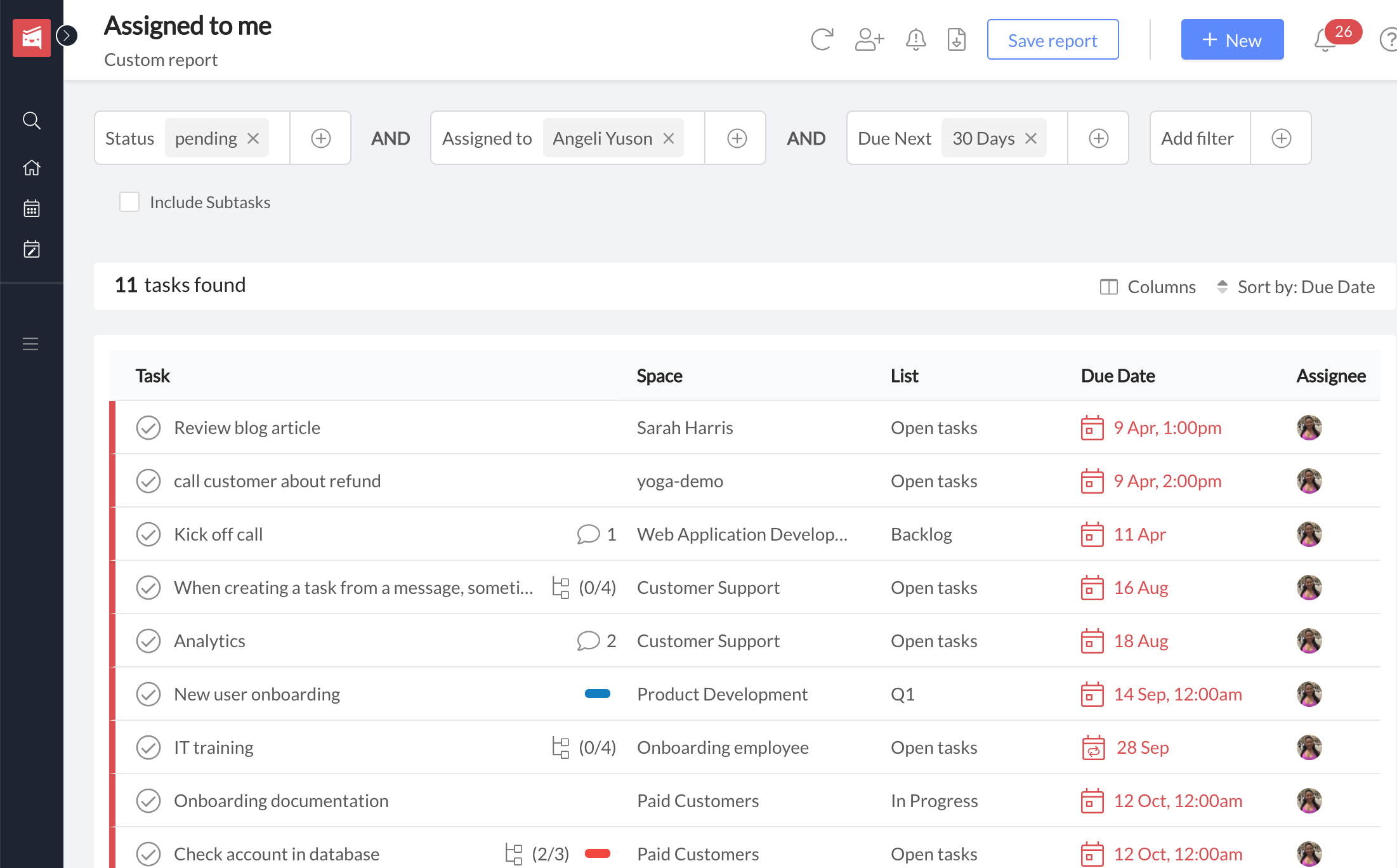Every time a small business is faced with problems that adversely affect the effectiveness of the team. Unsuccessful meetings, blockages in the mail, and lack of information about what colleagues are working on - all this prevents employees from completing tasks from the to-do list and performing well.
A team's productivity is the amount of productive work that a team can do if they stop distractions. It's not just productivity for the sake of productivity, but rather building a quality workspace that promotes fruitful teamwork.
1. Prioritize work on critical results
On any given day, a small business employee may have a dozen different tasks from different projects. Each of them may seem necessary and urgent. Where to start? Where do you devote most of your time and intellectual resources to getting a job done well?
Some assignments are more important than others. For this, you need to have clearly defined goals and understand how the team's work relates to them.
Short-term goals form the basis for achieving long-term goals. Having a clear idea of what tasks are related to the purposes of the entire company or division is essential so that everyone works together and can make decisions that will positively affect the overall state of affairs.
Workast is great for prioritizing work on a daily basis. Each team member can run a report of all the tasks assigned to them and prioritize them based on the due date. Therefore, each team member will know exactly what needs to be done.
2. Consider the strengths of team members
No two employees are alike. Everyone has different experiences, different strengths and weaknesses that make people valuable team members. In addition, different people love different jobs. For example, one person likes to conduct research and form reports about it, while another is more likely to shoot himself not to sum up the research results.
Therefore, knowing who is best at a particular skill in your small business team and finding ways to provide people with the opportunity to do what they like, you can optimize work on tasks and projects. Moreover, if a person is especially interested in specific tasks, he will most likely work on them better and faster. Giving small business professionals tasks that inspire them, you help them perform as efficiently and productively as possible.
If you see that your employees are good at something, you can always help them improve themselves. You can offer different courses and training to them. An example would be training to be a project manager. You would grant your employees professional training, a project management certification and confidence in their work.
3. Choose the right place to work
If a small business constantly needs an office for brainstorming, meeting with clients, negotiating with partners, then a place such as coworking spaces Los Angeles is the perfect solution. Such places you can find everywhere. Usually, the right "working" atmosphere reigns there.
The coworking space is inhabited by people working on projects in different directions - IT specialists, designers, marketers, etc. Naturally, such an environment fosters a work attitude; in addition, if you have difficulty in any area, you can ask for advice from a specialist, which will inevitably lead to an increase in productivity.
4. Encourage team members to interact
The fact that you are from different departments does not mean that you cannot work together. All of you do this to achieve one common goal. Knowing what other departments are doing encourages team members to work together in situations where their goals and objectives overlap.
Work management tools enable employees to gain insight into work in progress in other departments by linking each project stage to a single set of goals. These tools can serve as a one-stop-shop for sharing information about your work with colleagues and identifying areas where people from different departments can interact. Using a single source of reliable information can improve teamwork and reduce barriers to efficiently completing essential tasks.
You can also encourage team members to talk to each other as a great working environment will help remote team members feel more happy and connected at work, and in return produce higher quality work.
5. Arrange days without meetings
Attending meetings can negatively affect productivity because it gets out of hand and prevents the project from completing. Having at least one day devoted to critical work — a great time to devote to a project. It is a significant contribution to efficiency and productivity.
So, define a day and ask employees not to make internal appointments on that day, given colleagues' schedules. Thanks to this, specialists have a significant amount of time to do work and not talk about it. As a result, the organization has more time to analyze, execute, and revise critical project processes.
Final Words
Efficiency improvement is an ongoing process. It may sound daunting, but simple techniques can improve the productivity of every employee. And when you and your team learn to use these guidelines, efficiency will become routine and an integral part of any project.
This article is a guest blog written by Lucas Campbell. To contribute a guest post to Workast.com, please complete the expression of interest form here.


